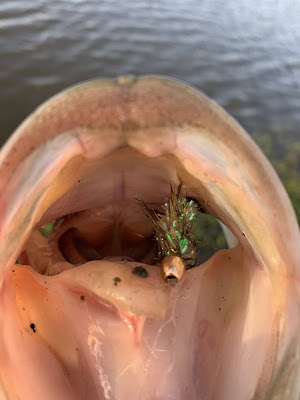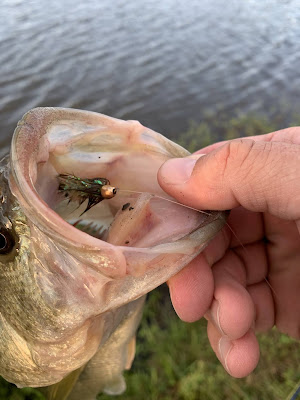Earlier this week I was able to fish an HOA pond near my house that I have frequented for the last couple of years. It can be good in the spring and fall but it can get slow in the summer. It appears that the action is picking up as fall is starting to creep in. I ended up catching about 6 bass and one crappie. The largest bass was about a pound and the crappie pushed 12 inches. For this lake, those aren't bad fish. That got me thinking about how using the term "big fish" is a relative term.
One of the reasons that my mind went to this topic was due to a conversation that I had with a couple students earlier in the day. I overheard two young men arguing and before I could hear what was going on, I overheard one of the young men say, "Well let's ask Mr. Dykes! Mr. Dykes, is a 20 pound fish big?" My response was, "Well, that depends. A 20 pound flathead catfish on the Missouri River isn't big but a 20 pound largemouth is close to world record status." After thinking about it a little more, I realized that an 18 inch rainbow at a Missouri trout park is big, but it isn't considered big on Lake Taneycomo. I informed them that big is a relative term and it is relative to the species and body of water. I found it apropos that I caught, what I would call, a nice bass and crappie for the lake that I was on.
This principle is important to keep in mind when weighing the amount of success you have on the water. It feels safe to say that most anglers reflect on their time on the water and somehow judge their level of success. So when it comes to whether a specific fish could be classified as "big," don't forget that term is relative and is flexible. That just might be the difference between making a good day feel like a great day!










No comments:
Post a Comment